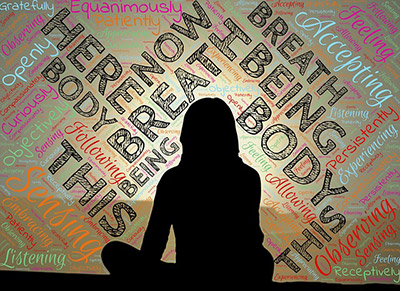Self-Regulation
# Find your balance
Self-regulation can be defined in various ways. With regards to the emotional self-regulation I am talking about (at its basics), self-regulation is being able to recognize and control your emotions, thoughts and corresponding behaviors. This can also be called self-awareness (being aware of your thoughts and feelings) and self-management (being about to control your thoughts and feelings).
When the term self-regulation is generally used, it is mostly talking about disruptive emotions and explosive behaviors. We also need to understand that self-regulation does include the ability to process and lift yourself up when dealing with disappointment. Self-regulation is a balancing act our bodies do to keep our emotions in check and to help us think before we act so that we act in accordance to the situation at hand.
 Self-Regulation Development
Self-Regulation Development
Your ability to self-regulate and the skills you learned for self-regulation has roots in your development during childhood. Learning how to self-regulate is an important skill that most learn as a child, however, it's a skill that follows you through adulthood and It's one of those skills that will grow with you and be used your entire life. If proper development has happened as a child, when adulthood hits, individuals should have the ability to face emotional and social disruptions with appropriate behaviors. If this skill was not properly learned, individuals will have a difficult time understanding their emotions and emotional situations, leading to outbursts, unwarranted anger and even the inability to pick themselves up during disappointment.
Importance of Self-Regulation
Self-regulation involves taking a pause between recognizing a feeling or emotion you are experiencing and taking the appropriate corresponding action, taking the time to think things through first before acting. Children often struggle with these behaviors, adults may as well, and this struggle usually points back to how one was raised, the environment they were in and what corrections or praise they received when they were children and exhibited a particular emotional response.
It can be easy to see how a lack of self-regulation can cause problems. Most of us have witnessed a child that is in full on tantrum or melt down, usually in the middle of a crowded store (they pick the best times and places for these behaviors). A child who yells or hits other children out of frustration will not be popular among peers, and start to develop issues making or keeping friends. Children can also face reprimands and at times isolation or punishment.
An adult with poor self-regulation skills, may lack self-confidence and have trouble handling stressful situations, this also can lead to isolation or reprimand depending on the situation and environment. And just like in childhood, they too may have issues making and keeping friends.
In its most basic form, self-regulation allows us to bounce back from challenges and helps us to stay calm in stressful situations.
Effective Strategies
self-regulation is a learned skill. And the reason we may or may not self-regulate very well, is because most of us were never taught the strategies as children. Most often, parents, teachers, and other adults expect that children will "grow out of" the tantrum (or other) phase(s), and some behaviors are looked at as “that’s what children do”. What I have learned in trauma is that what a child does not or can not talk out, they will act out, this acting out takes forms of tantrums, and abusive behaviors. Children simply do not have the skills to communicate properly and this turns explosive. While growing out of particular phases is generally true for the most part, all children and adults can benefit from learning concrete strategies for self-regulation.
So What Kind of Strategies are Helpful in Self-Regulation (here are just a couple)
 Mindfulness
Mindfulness
Mindfulness is "the awareness that arises from paying attention, on purpose”. By engaging in focused breathing along with listening or paying attention to particular sounds, feelings, or sensations. Mindfulness enables us to put some space between ourselves and our reactions. It can be the break needed in an emotional loop, can help us take the moment we need to access the situation and act accordingly, help lead us to better focus, self-control and feelings of calmness and relaxation.
Cognitive Reframing
Cognitive reframing is another strategy that can be used to improve self-regulation abilities. This strategy involves changing your thought patterns by examining and reinterpreting a situation in order to change your emotional response to it.
Practicing/Learning Self-Regulation
As for children, adults in their lives need to take the time to understand what may be going on in a particular moment. Adults can use these moments as a teaching opportunities to help a child understand the feelings they are feeling and how to choose the appropriate response. If emotional understanding is left unchecked and disruptive behaviors not addressed, children grow into teens and eventually adults who can not self-regulate, this can then turn to abusive or self- destructive behaviors.
Parents can help develop self-regulation through routines. When children act in ways that don't demonstrate self-regulation, ignore their requests, correct and/or praise particular behaviors.
As an adult, the first step to practice self-regulation for yourself is to recognize that everyone has a choice in how to react to situations but not everyone has the skills needed to deal with situations on an emotional level. While you may be upset at a situation, it's the situation as much as it is how you react to it that matters. Learn to stop, take a breath, and look at the situation. Use those mindfulness techniques to distance yourself just a bit from the initial knee jerk feelings or response. The second step is to become aware of your feelings. Do you feel like running away or lashing out in anger? Monitor your body to get clues about how you are feeling, then act in an appropriate way.
 In closing
In closing
Once you've learned this delicate balancing act known as self-regulation and actively practice it, the whole process will become second nature. Developing self-regulation skills will improve your ability to face obstacles and challenging interactions throughout life. In addition you will find an added benifit of calm and an ability to move through daily tasks and interactions more smoothly.
